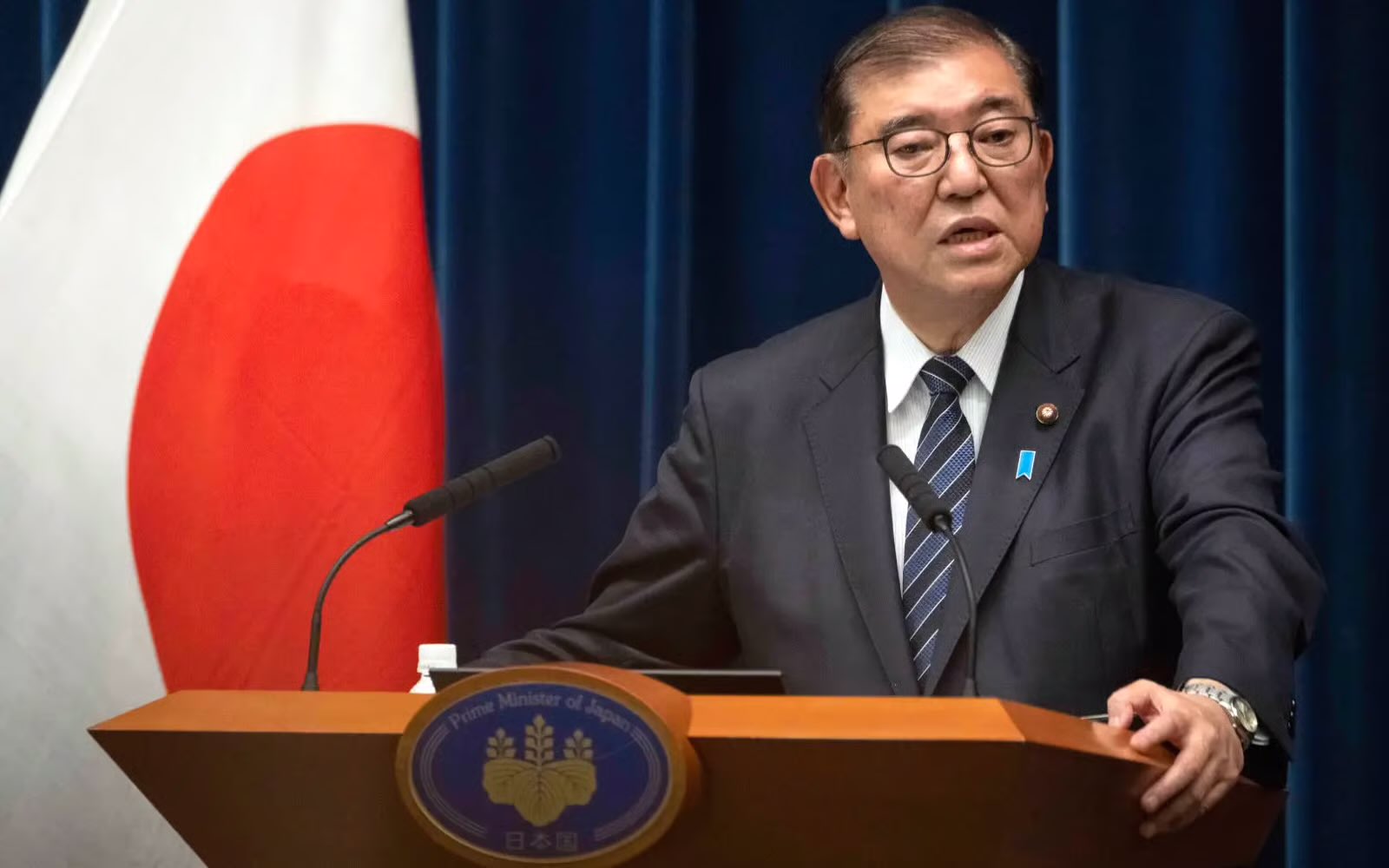Ishiba's resignation opens a new chapter in the long crisis of Japan’s centre-right
Japan's prime minister announced his resignation yesterday after weeks of tensions with members of his Liberal Democratic Party, struggling with a loss of support among conservative voters. Several candidates have already come forward, showing their desire to succeed Ishiba as party leader, but the issue of leading a government without a parliamentary majority remains.
Tokyo (AsiaNews/Agencies) – Less than a year after taking office, Japanese Prime Minister Shigeru Ishiba announced his resignation yesterday, ushering in a new period of political uncertainty for Japan.
The decision stems from growing pressure within his own party, the Liberal Democratic Party (LDP), which suffered major defeats in the last elections, losing its majority in both houses.
Ishiba took responsibility for the LDP's poor performance in the July election to the House of Councillors (upper house), and stressed that his resignation was intended to prevent further internal party divisions.
In July, the Japanese newspaper Mainichi first reported that Ishiba was planning to resign, based on information from the prime minister and his closest aides.
Early reports indicated that preparations for the LDP leadership race would begin in August; however, Ishiba publicly denied them, emphasising the importance of completing tariff negotiations with US President Donald Trump, who had set a 1 August deadline.
In his address yesterday, Ishiba explained that announcing his resignation in July would have weakened Japan's position: “Who would seriously negotiate with a government whose leader says he is stepping down?” Ishiba said.
Ishiba then tried to calm internal pressure within the LDP by threatening to dissolve the House of Representatives and call early elections, a move that exacerbated divisions and prompted his main coalition partner, Komeito, to reject that as unacceptable.
According to the Kyodo news agency, former Prime Minister Yoshihide Suga and Agriculture Minister Shinjiro Koizumi both held talks with the prime minister on Saturday, avoiding a split within the party and paving the way for yesterday's announcement.
Attention now turns to the next LDP leader, who could also become prime minister if they can muster enough support or agreement with the opposition.
The main contenders include party members who have challenged Ishiba in the past, like Sanae Takaichi, a former Minister of State for Economic Security, who has 23 per cent support in a recent Nikkei poll.
Takaichi belongs to the party’s conservative wing and has a strong support base among loyalists of former Prime Minister Shinzo Abe, who view her as his heir, especially regarding economic policies, which could boost stock market recovery.
Takaichi also has a reputation for getting along well with President Donald Trump.
Agriculture Minister Shinjiro Koizumi, son of former Prime Miniter Junichiro Koizumi, is another likely candidate, having managed to lower rice prices after taking office. The Nikkei poll showed him with 22 per cent approval rating.
Other party members have indicated their intention to run, including Yoshimasa Hayashi, Chief Cabinet secretary, and chief spokesperson for the Ishiba government, who placed fourth in the 2024 party leadership race.
Then there is Takayuki Kobayashi, another former Minister of State for Economic Security who enjoys greater support with the centrist wing, and Toshimitsu Motegi, former LDP secretary general and the oldest candidate at 69.
The LDP is currently in a very weak position. In the last election, many conservative voters favoured the far-right Sanseito party, partly because of Ishiba's estrangement from the conservative wing.
According to a Kyodo poll conducted before Ishiba's resignation was reported, 83 per cent of respondents said that a public clarification from the party about its recent defeats would not have increased their confidence in the governing party.
It is clear, therefore, that the task of the next party leader will be to restore the centre-right's credibility. And whoever is chosen will face a crucial decision: Call an early election to try to regain a majority in the lower house or risk losing power altogether.
Such a choice threatens to usher in a new period of unprecedented political instability, requiring the need to rally support even among opposition parties to pass laws and budgets.
According to several observers, the next leader will first need to enjoy genuine popularity both within and outside the party to address challenges such as an aging society, a declining workforce, inflation, and fears that the United States might abandon its role as a guarantor of security in the Asian region.
31/10/2024 13:59
26/10/2024 14:42
11/07/2022 14:40







.png)










